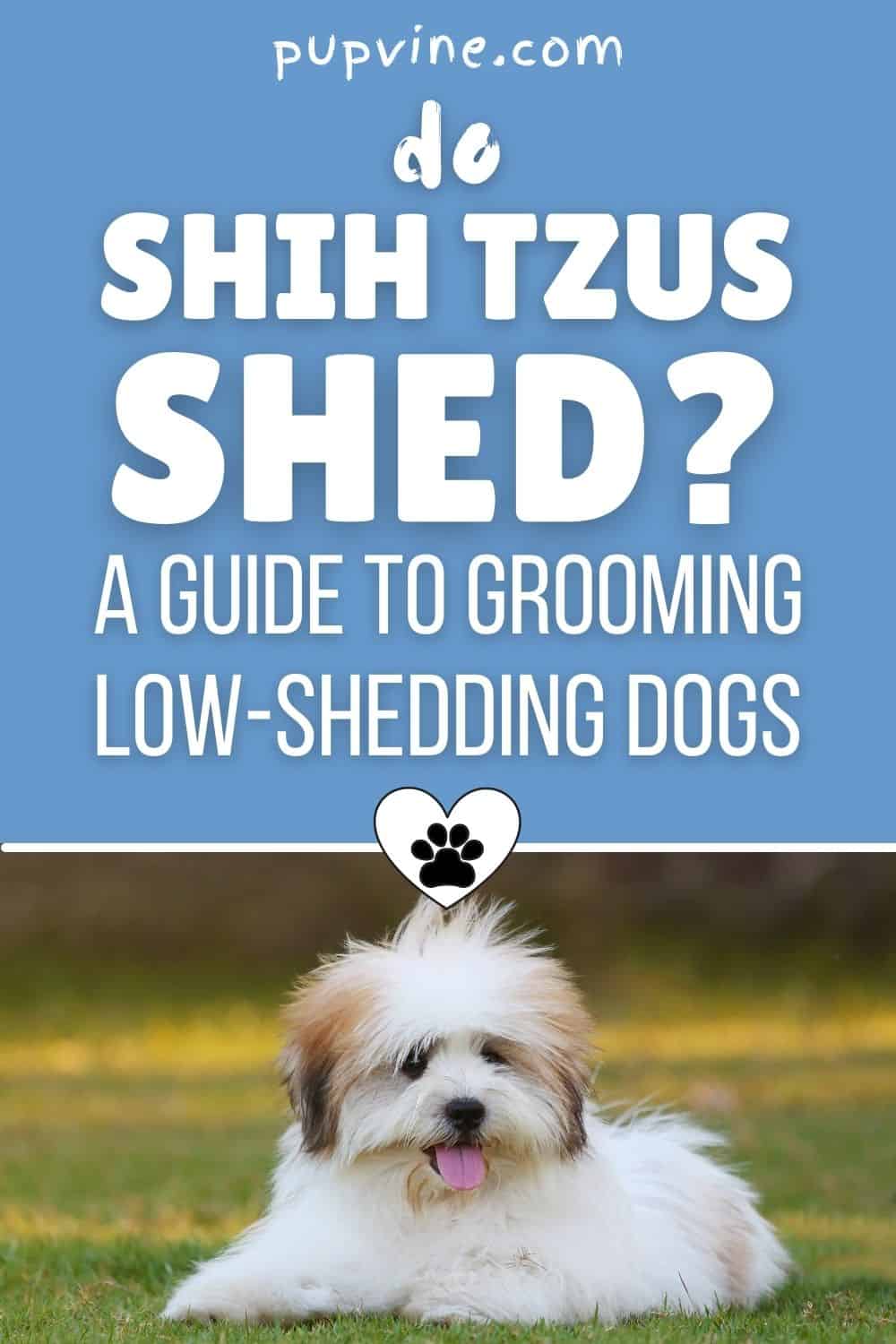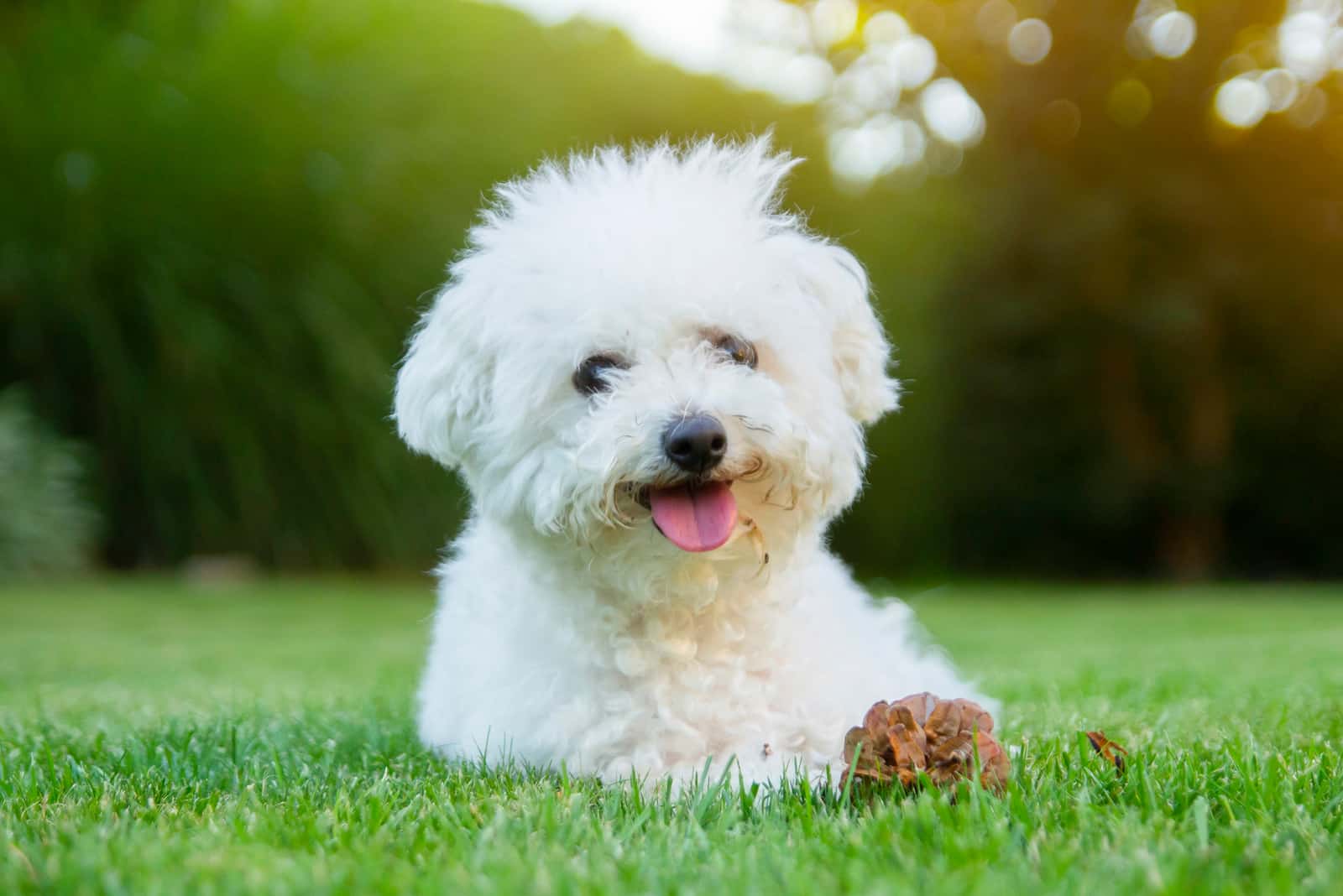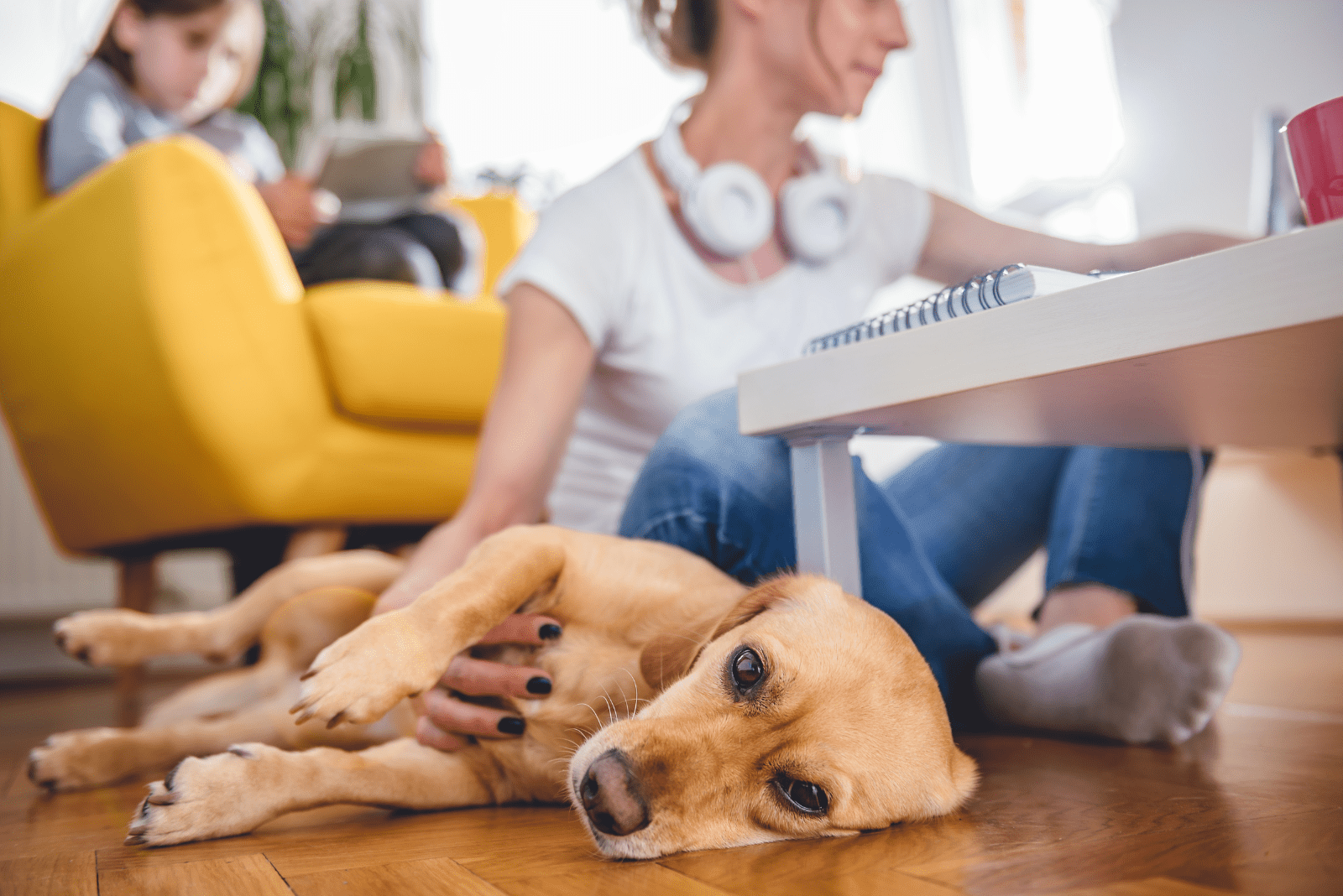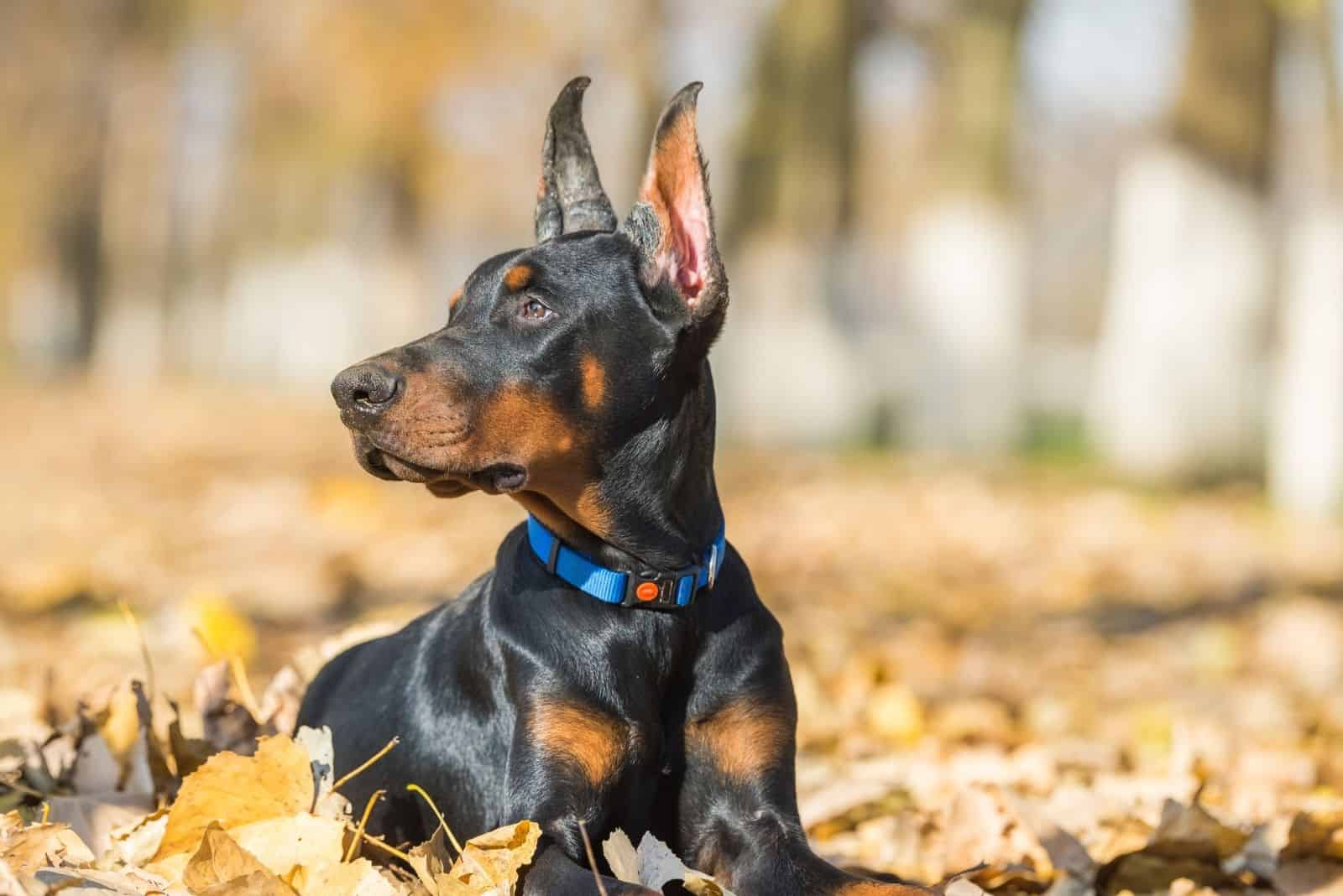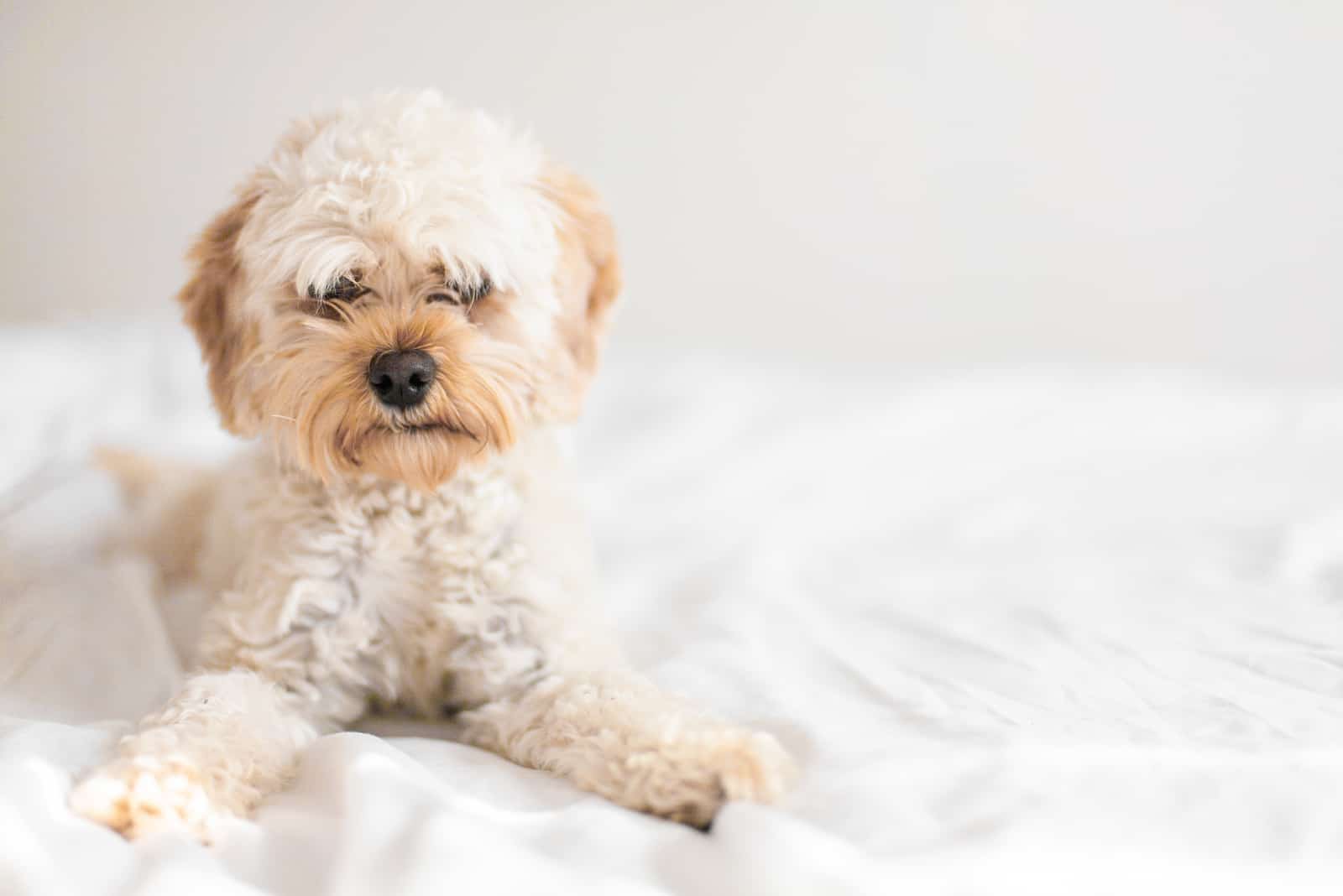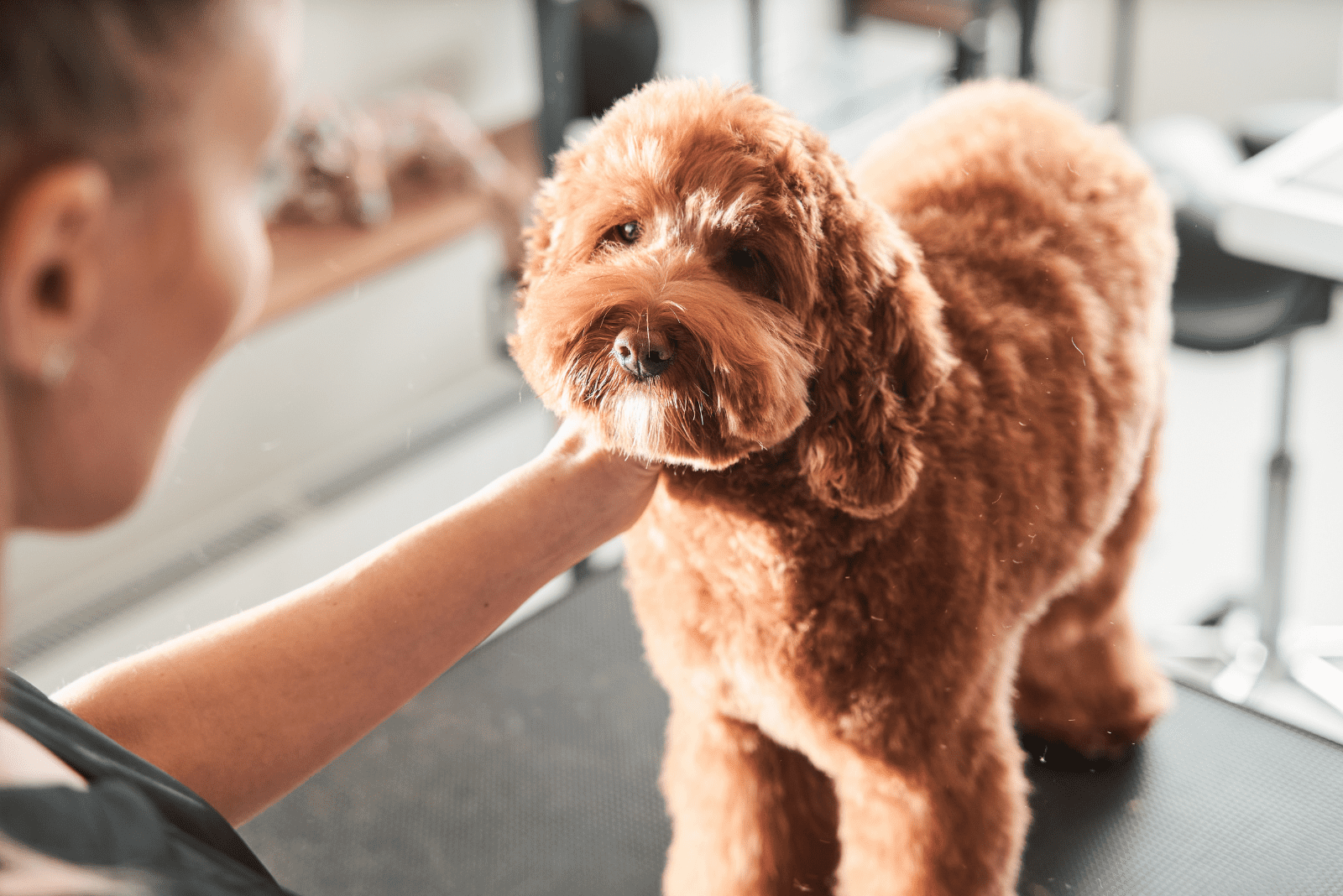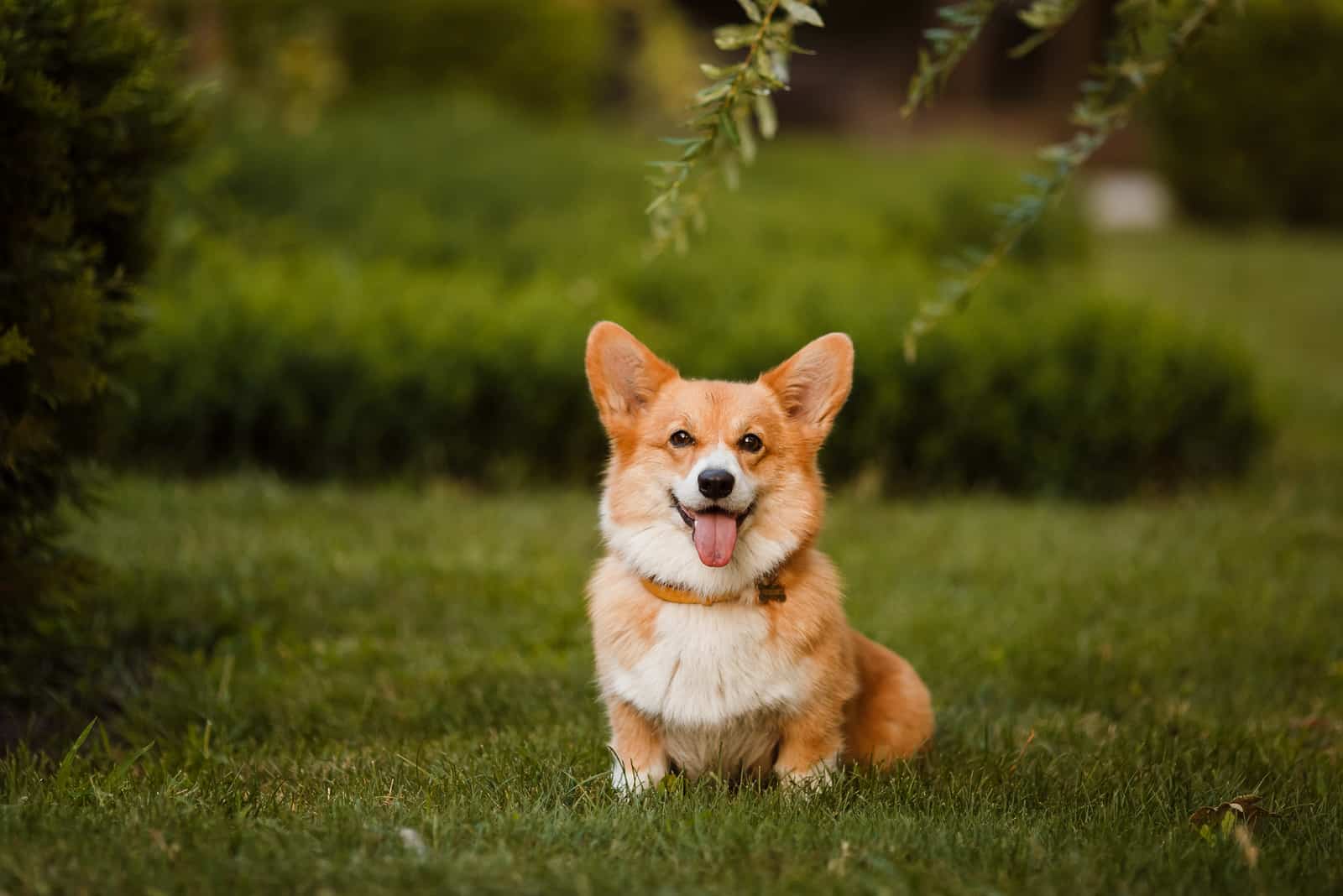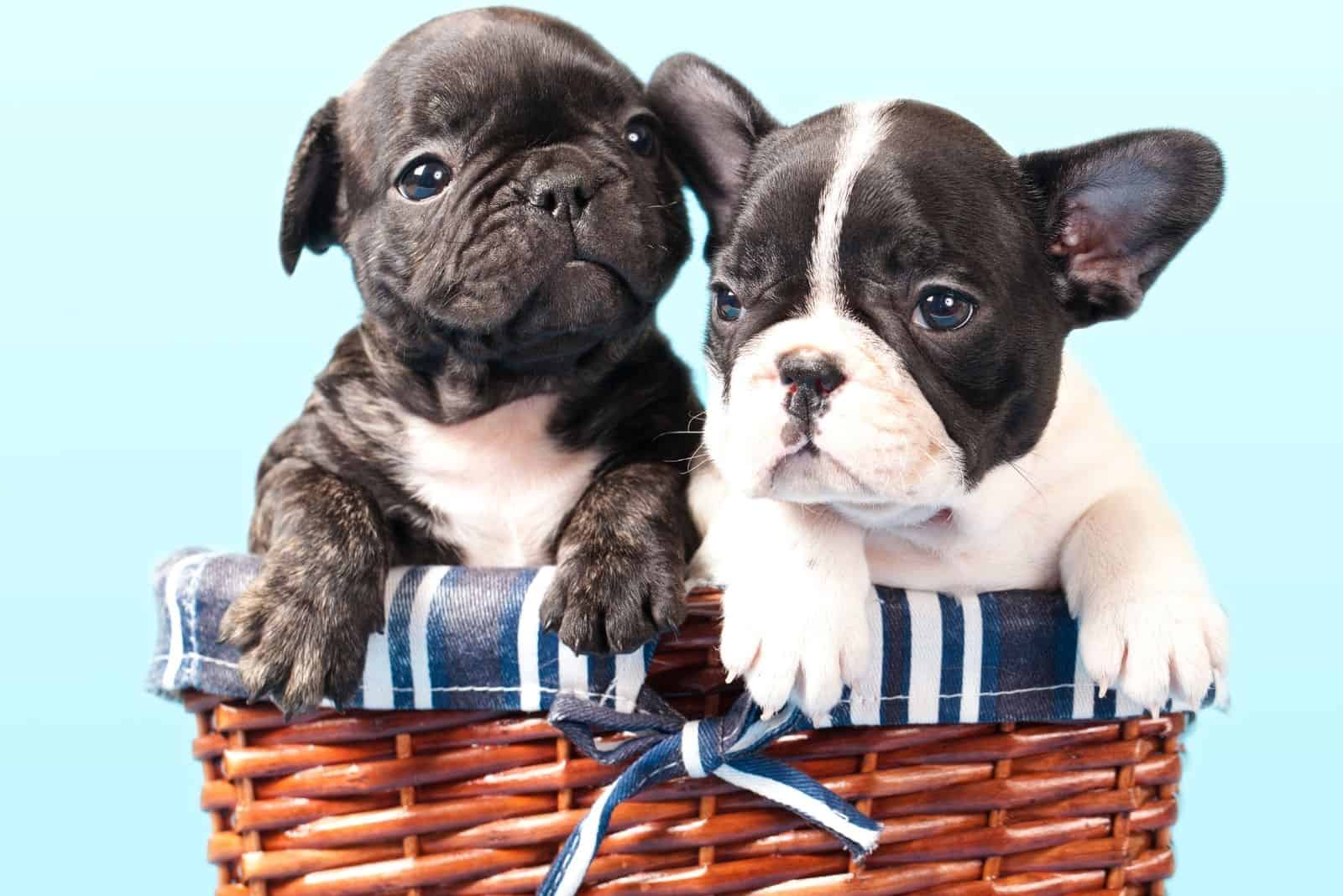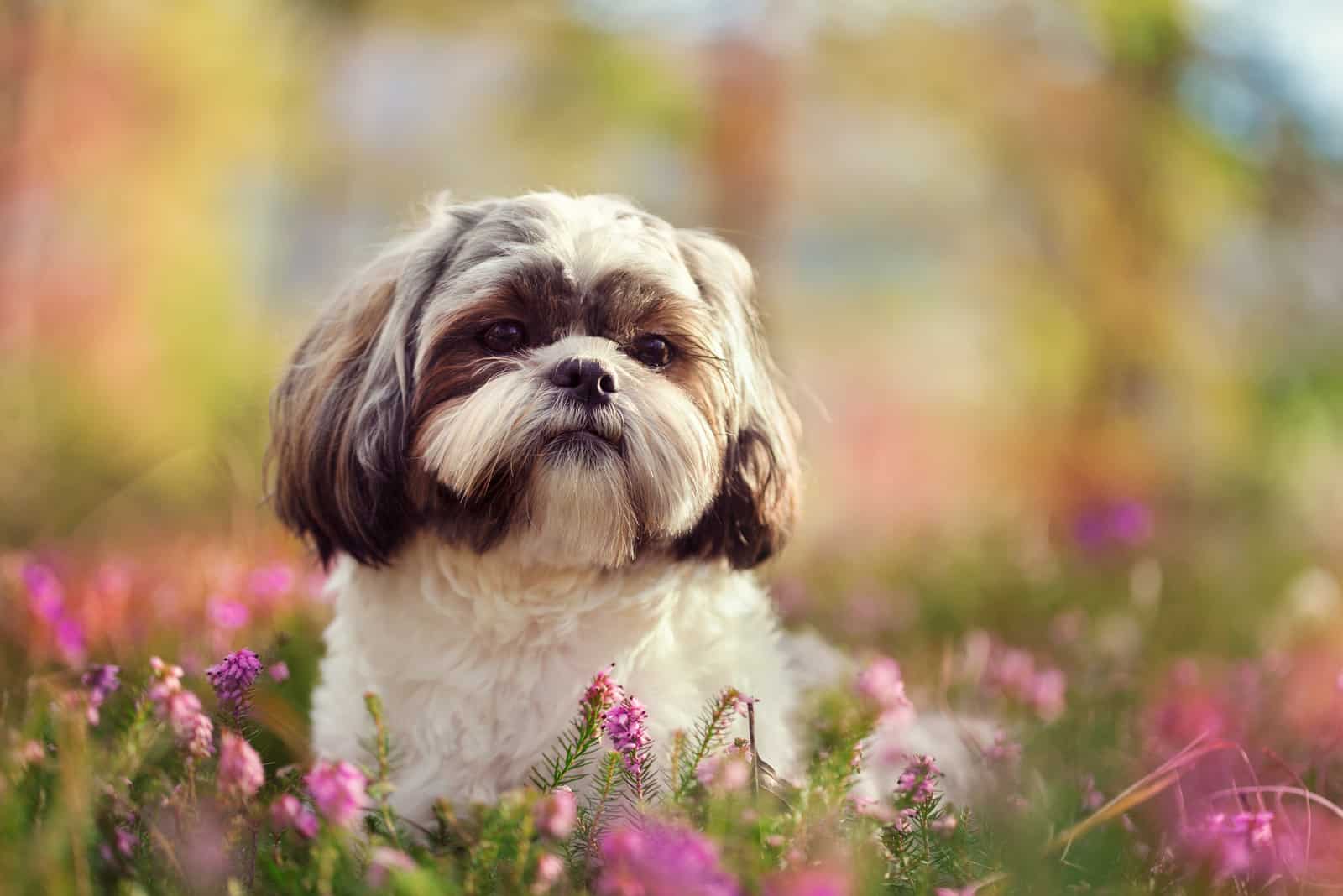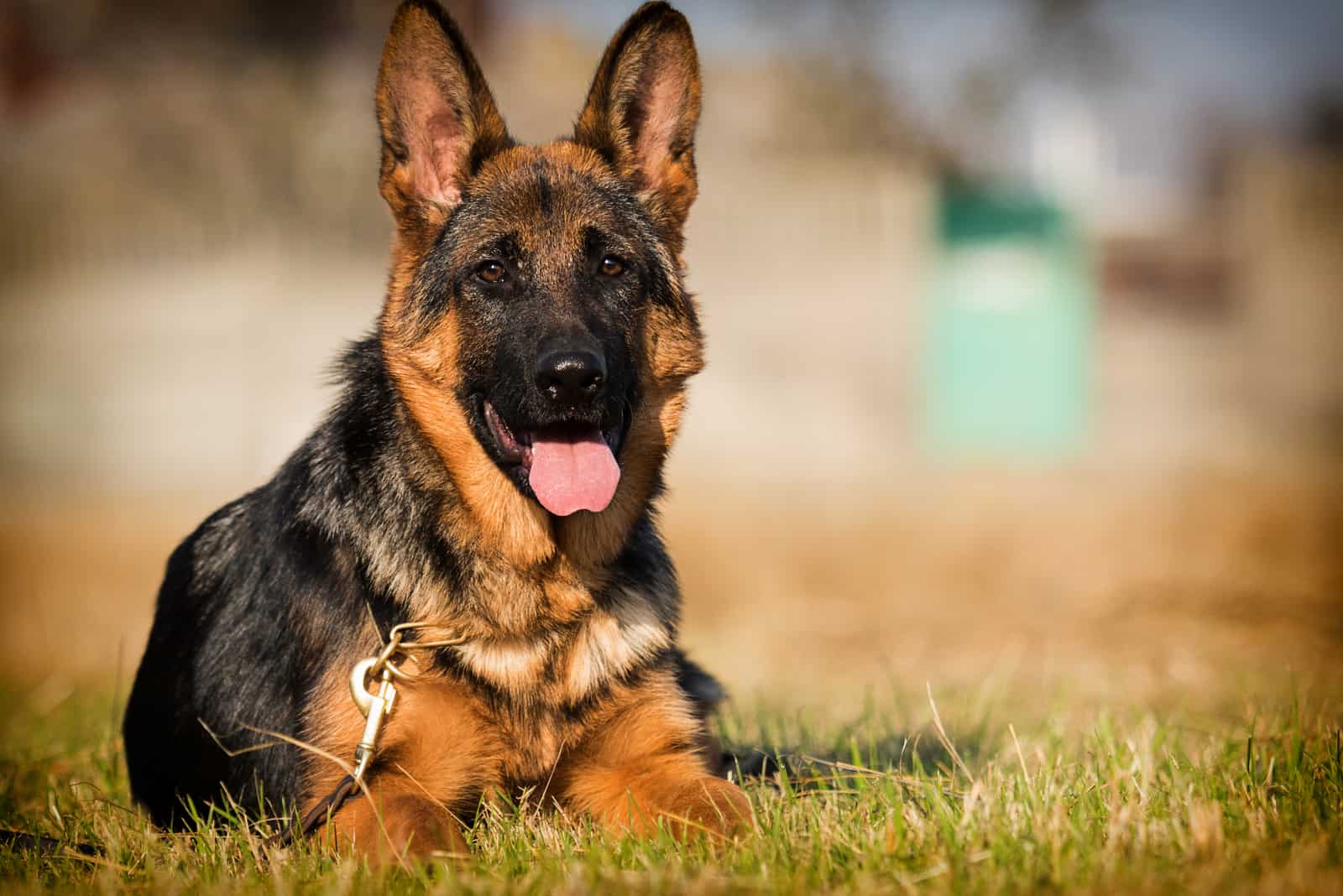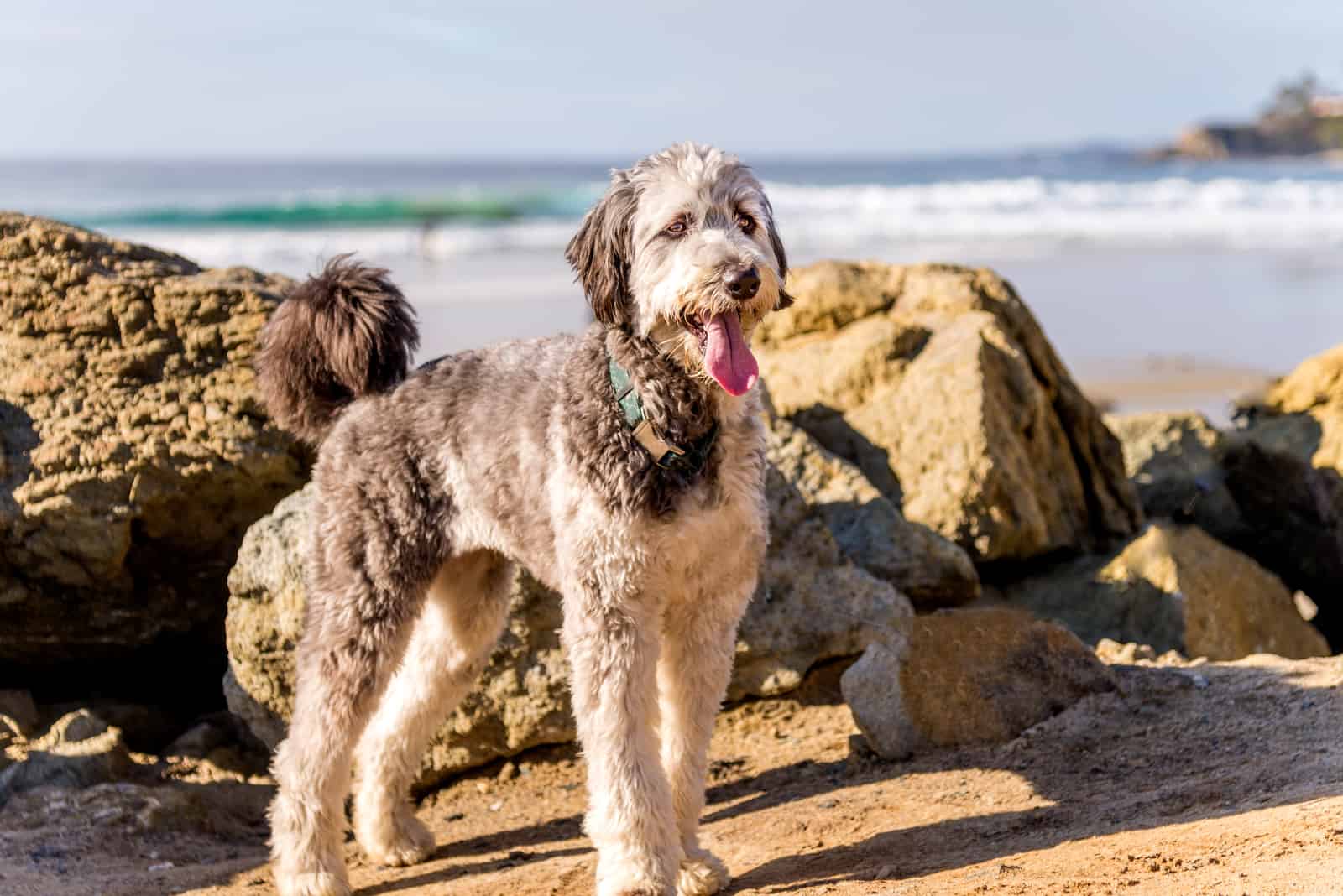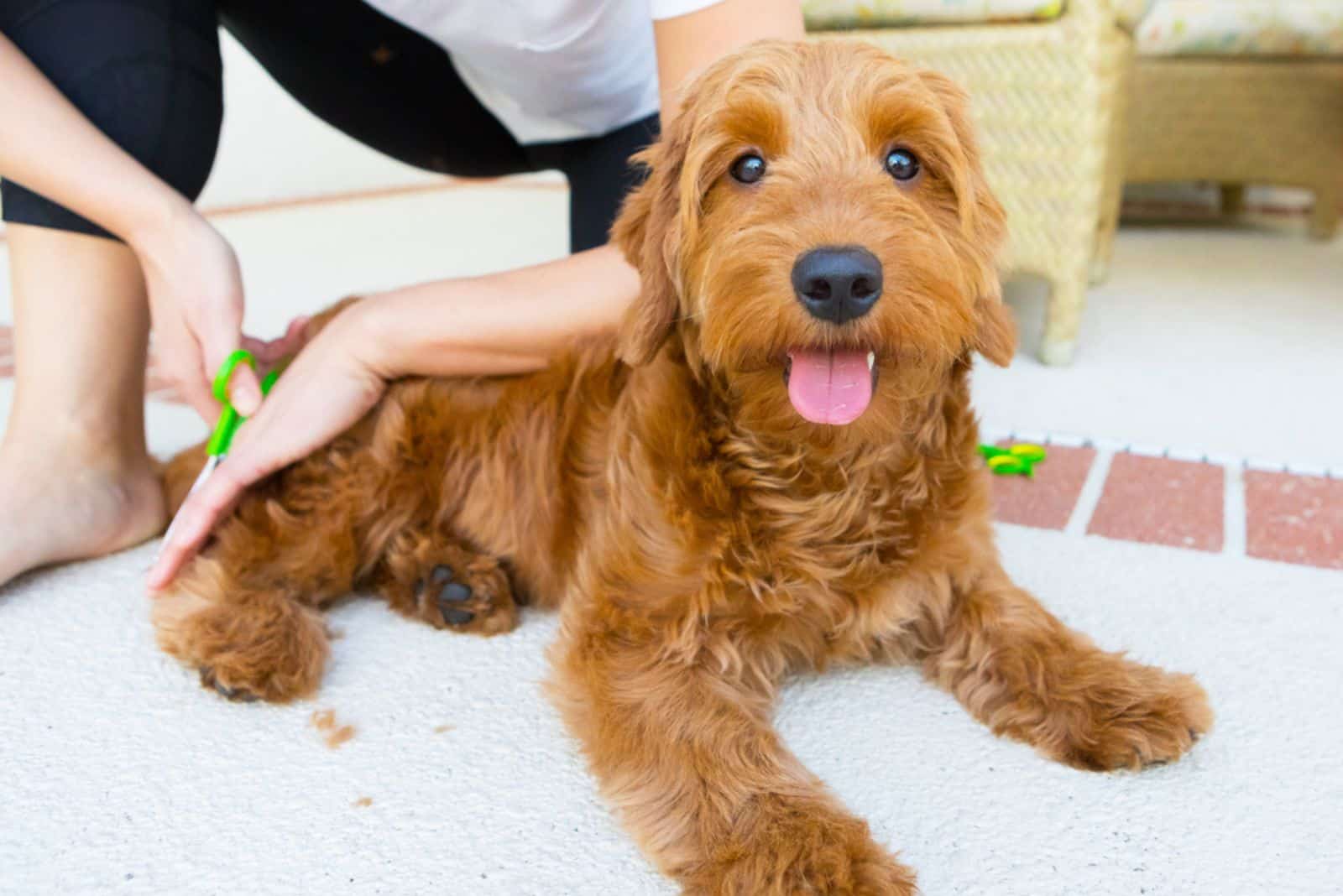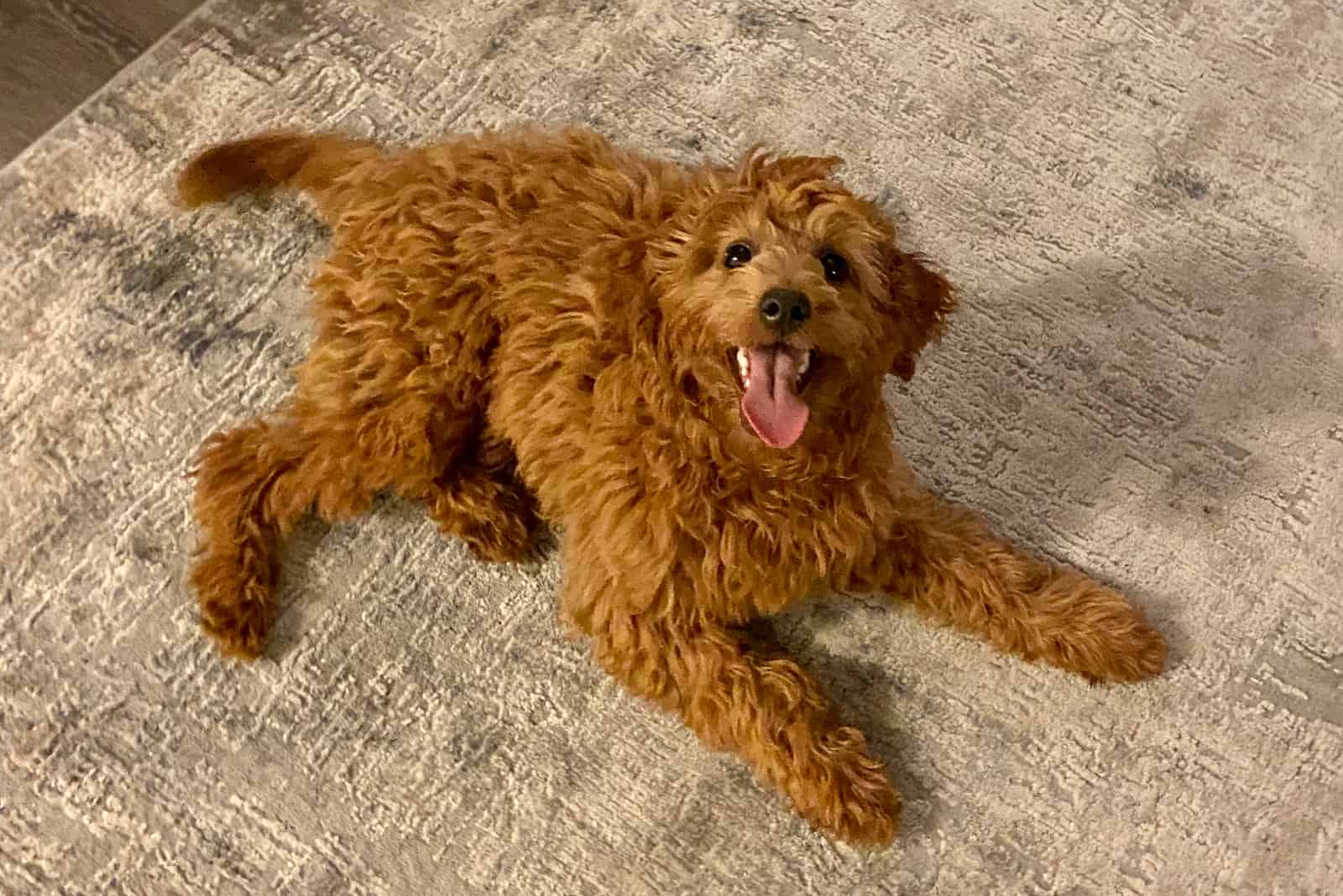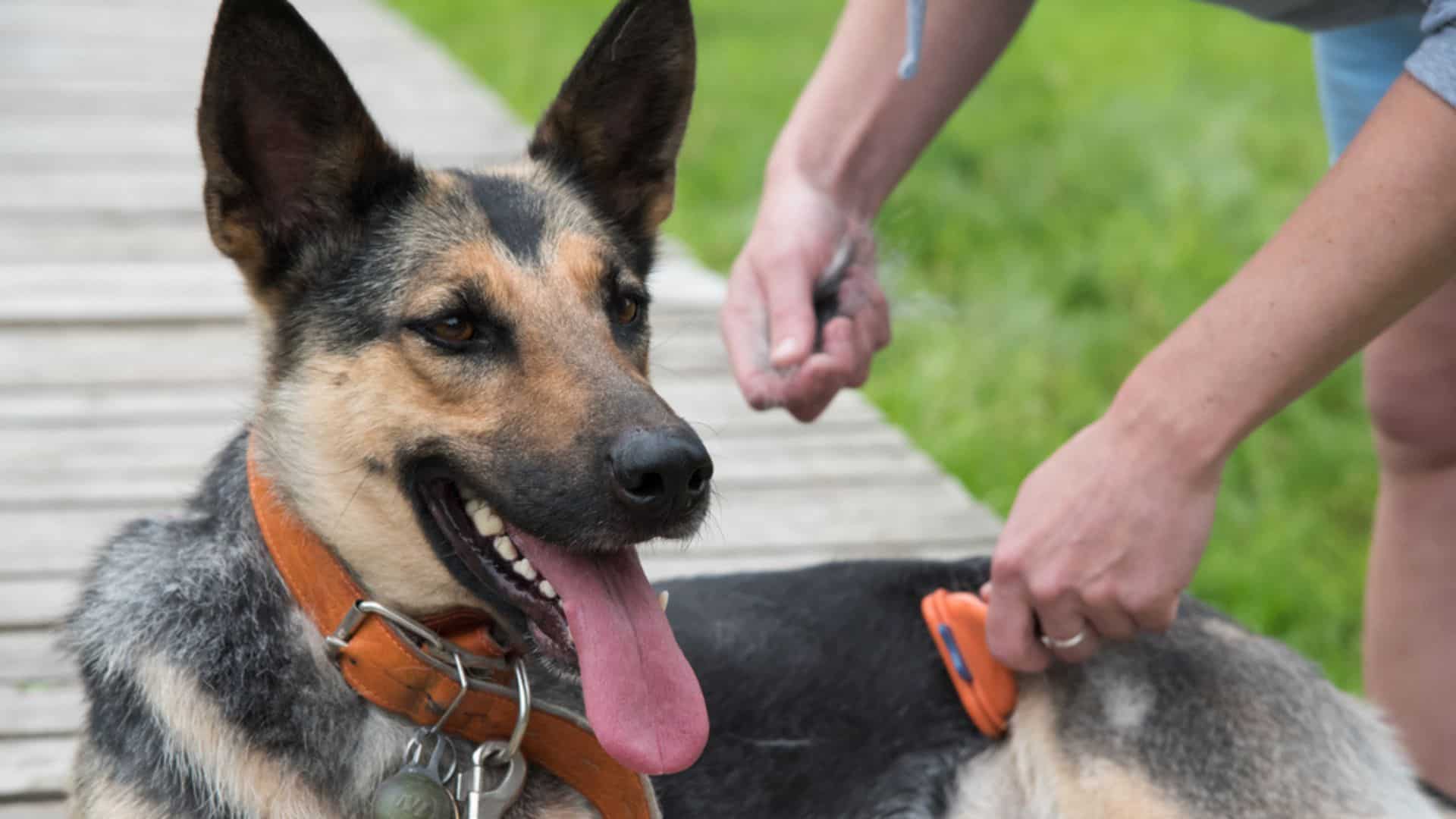Throughout history, millions of dog owners have resigned themselves to the tiresome problem of dog hair all over the place.
With some dog breeds, this stuff gets everywhere. It’s on your clothes, your furniture, and on you. Sometimes it’s even in your food!
You put up with this because you love your precious pooch, and you wouldn’t have it any other way. In fact, it doesn’t bother a lot of ‘doggie’ people – it’s all part of the package of owning that adorable ball of fluff.
However, this doesn’t work for everyone, especially those unlucky enough to suffer from certain allergies that can make life a misery.
One answer to this problem is to find yourself a hypoallergenic dog breed, such as the Shih Tzu.
As there can be a lot of misunderstanding around the term ‘hypoallergenic,’ we’ll pause here to explain:
To begin with, there is no such thing as a non-allergenic dog! The word hypoallergenic means that something is unlikely to cause an allergic reaction.
With dog breeds, this term usually applies to those that don’t shed as much as others or that require frequent bathing.
Now, you might wonder how or why this has any effect on allergies, so we’ll explain this as well:
Most allergic reactions to dogs are due to allergens in the dog’s saliva or dander (dry skin that has flaked away and sits on the dog’s coat).
Dogs that shed a lot will drop hair and dander, some of which will be coated in dried saliva.
Clearly, dogs that shed less won’t be leaving hair everywhere, while those that need regular bathing will have the saliva (and dander) washed away.
Also, if a dog is clean, it will not feel the need to groom itself, depositing more saliva on its coat.
For those who are seeking a low-shedding dog, whether for health reasons or simply because you don’t relish the thought of dog hair all over your clothes and furniture, you might be asking, ‘Do Shih Tzus shed?’
If this sounds like you, then read on to find the answer, along with other helpful information!
The Shih Tzu’s Coat
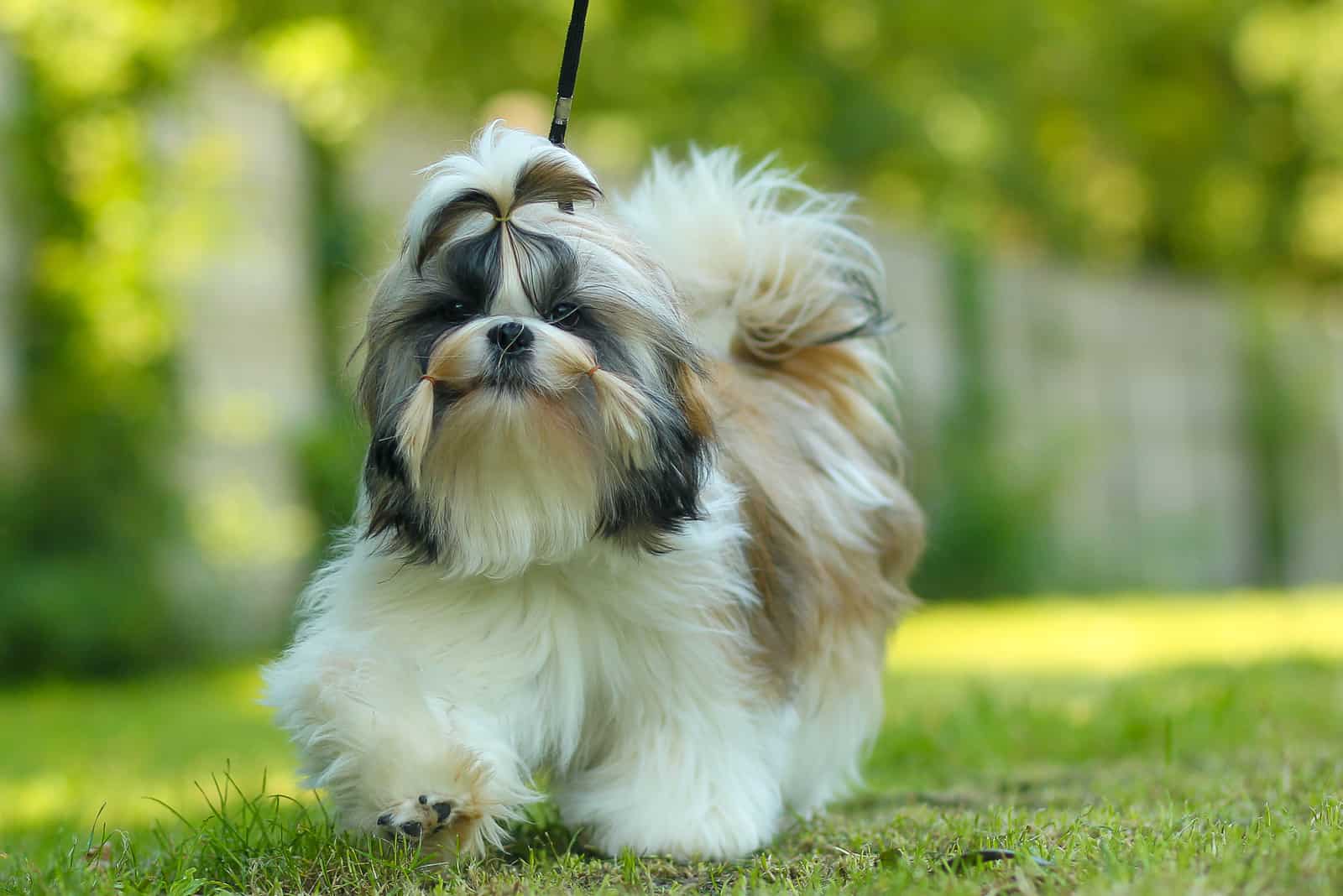
There’s a common misconception about dogs and their coats. Many people believe that the words ‘hair’ and ‘fur’ are interchangeable when it comes to dogs.
However, some dogs have fur, and others have hair. While both are similar on a genetic level (made from keratin, like your fingernails!), they are different in terms of how they feel and must be treated differently.
Let’s spell out the differences:
• Fur – generally shorter and denser, with more hair follicles and a faster growth cycle. This means that the shedding will be heavier and that more dander will be spread. Dogs with fur usually have a single layer.
• Hair – usually smoother, finer, and longer. It can be straight, curly, or wavy. Curly-haired breeds present a higher risk of allergies as dander can get stuck within the tangles. Dog breeds with hair rather than fur often have a double coat (usually called a top coat or outer coat, and an undercoat).
The Shih Tzu’s coat falls into the double-coated hair category. The coat comes in numerous color variations (black, blue, white, silver, gold, red, brindle, liver, black and white…) However, does that mean they don’t shed at all, as some people believe?
Well, as with hypoallergenic dogs, there’s no such thing as a ‘no shedder.’ Instead, the Shih Tzu should be regarded as a ‘low shedder.’ All dogs shed to some degree as it’s a natural process of regenerating their coat to keep it healthy, usually in synchronization with the changing seasons. Some breeds shed profusely twice a year, whereas the Shih Tzu’s coat is in a constant state of renewal all year round.
To explain further, we’ll have to get a bit technical. All of the hairs go through three phases:
• Anagen phase – 85% of the dog’s coat is growing at any one time. If the dog is healthy, this will keep growing and growing, without any of the hair breaking off.
• Telogen phase – this is a resting stage where all the hair remains the same length and is held securely by the follicles.
• Catagen phase – this is when the follicle shrinks, cutting off the blood supply to the hair, which then falls out. Much of this is caught within the softer undercoat and needs to be brushed out.
So, Shih Tzus do shed, but very little when compared to other breeds.
While it might seem that we have answered the question pretty early in the proceedings, there’s a lot more to it than what we’ve learned so far.
Shih Tzus And Grooming
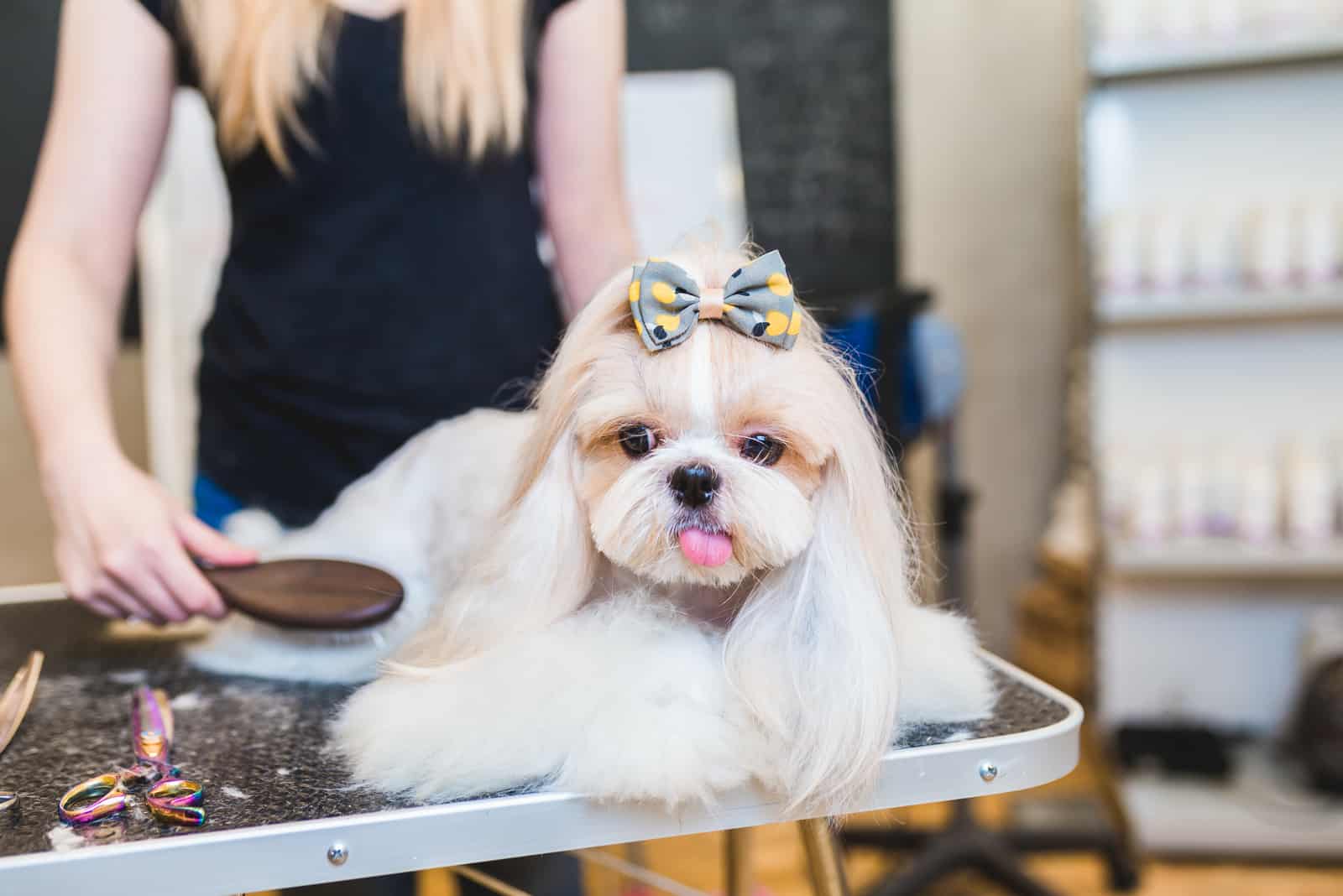
Although we have discovered that these adorable ‘toy breed’ pooches are very low shedders, there are a few facts that are worth knowing.
First, some have short coats, and others have long coats.
Both will shed at the same rate, but the shorter coats won’t trap the dead hair, and you may find them around your home.
Longer coats present more of a problem as the loose hairs will stick in the undercoat and could cause tangles.
This can lead to other problems as airflow to the dog’s skin is restricted, and the hairs become caked in natural oils, which causes them to smell.
From this, we can see that regular grooming is absolutely essential to keep the coat in good condition and maintain its hypoallergenic qualities.
Secondly, and in complete contradiction of much that has been said above, there is a time when Shih Tzus shed profusely!
Shih Tzu Puppies
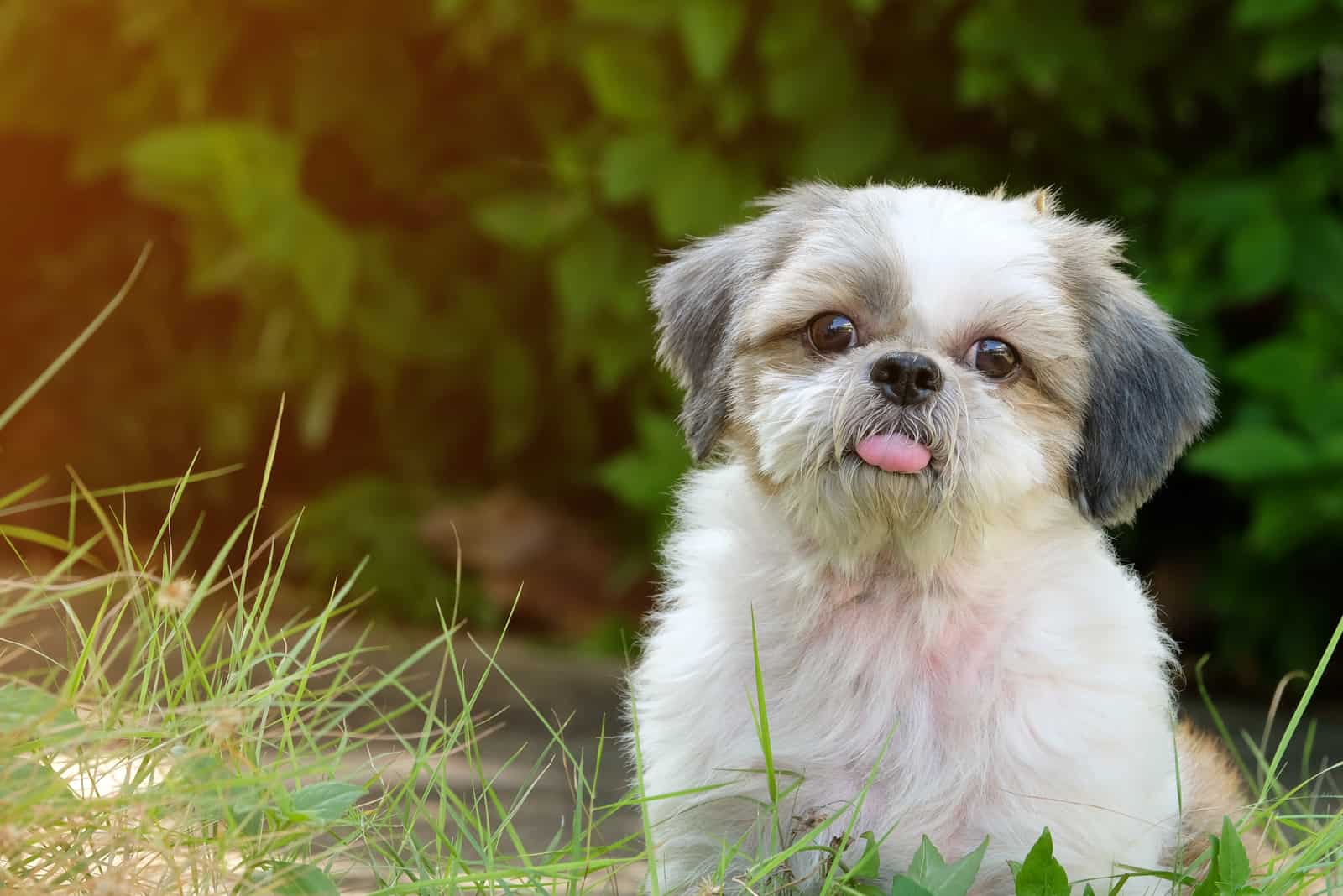
There is a stage where Shih Tzus start shedding like there’s no tomorrow.
At some point between the ages of three months up to a year, Shih Tzu puppies will go through a phase of shedding as they lose their fluffy puppy coat and their adult coat starts to grow.
This stage usually only lasts about three weeks, but be warned that it could be as much as three months! The best solution is daily brushing to catch all that loose hair.
The puppy coat is a lot lighter and softer and doesn’t grow out easily, so the sooner this phase is over, the better it will be for you and them.
Keeping Your Shih Tzu Hypoallergenic
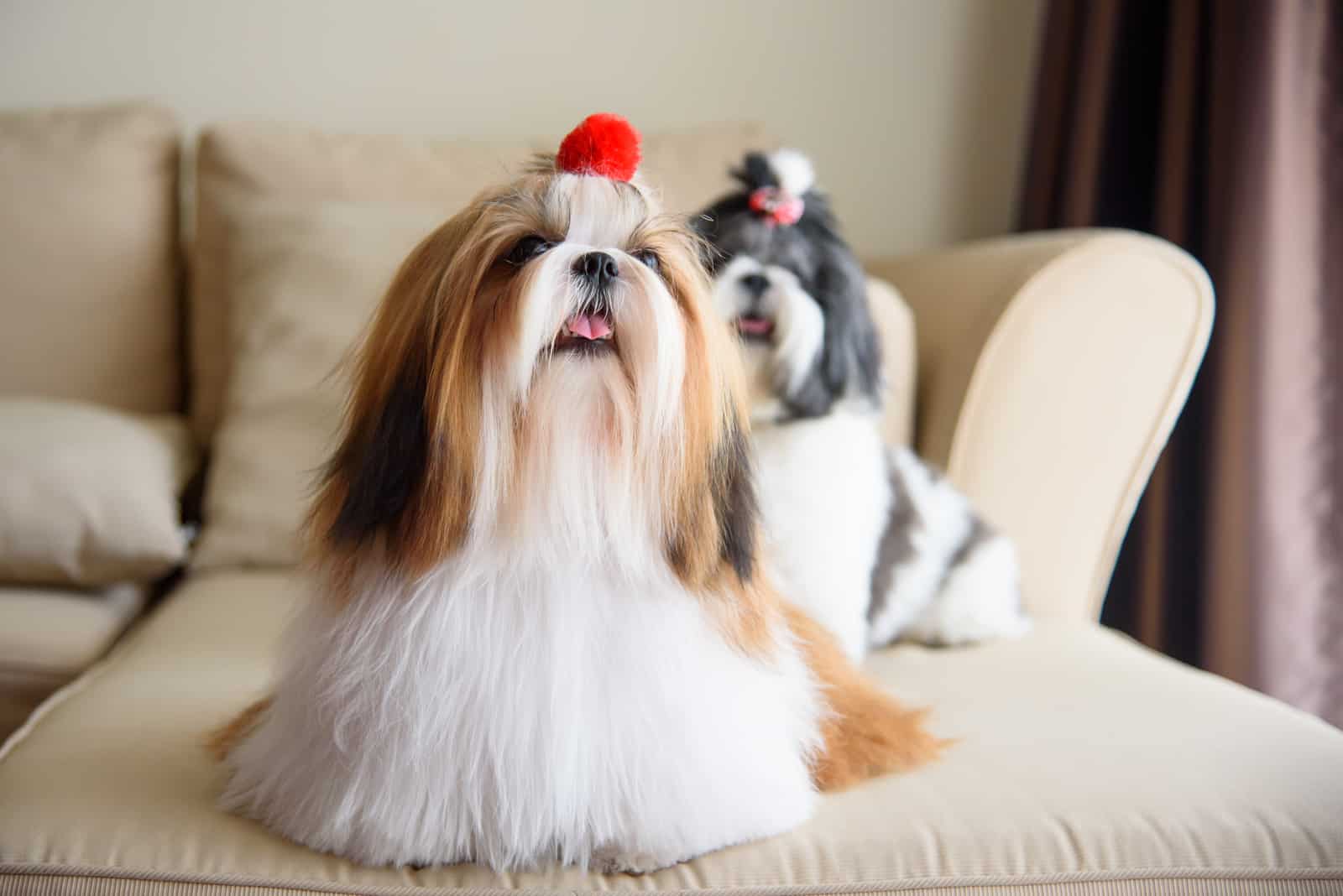
As we’ve seen, this term is often misunderstood. No dog is truly non-allergenic, and there is always a small chance of an allergic reaction to any breed, even the Poodle, which is often promoted as the best dog for allergy sufferers.
However, there are ways to limit the risk of allergens having an effect.
As with most other breeds, Shih Tzus can suffer from dry skin, which makes them scratch. This scrapes away dander that sits within the hair or rubs off onto your furniture, carpet, and clothes. It can also become airborne when the dog shakes, where it can be breathed in.
Any of these scenarios are bad news if you are allergic to dander.
To counter this problem, make sure you feed them the best quality dog food and try supplementing it with omega oils to keep their skin healthy.
To limit the risk of an allergic reaction even further, you might want to consider a few of these tips:
• Replace carpets with vinyl or laminate flooring, as it is easier to clean and won’t harbor hairs and dander.
• Don’t let your dog lie on the furniture as they may leave hair behind.
• Use a humidifier in winter when you have the heating switched on to keep the humidity levels balanced, as dry air can affect a dog’s skin and coat. Alternatively, get some extra houseplants or leave some bowls of water out.
• Use a conditioning coat spray to protect the hair and skin when the dog is outdoors. In summer, consider using a conditioner that contains sunscreen.
Regular brushing can help, too, as it stimulates the natural oils that keep the coat in good condition.
If this doesn’t resolve the problem, you might want to explore the possibility that your dog has a food intolerance or even a thyroid problem. This is something that your veterinarian will be able to help you with.
Other Causes Of Shedding
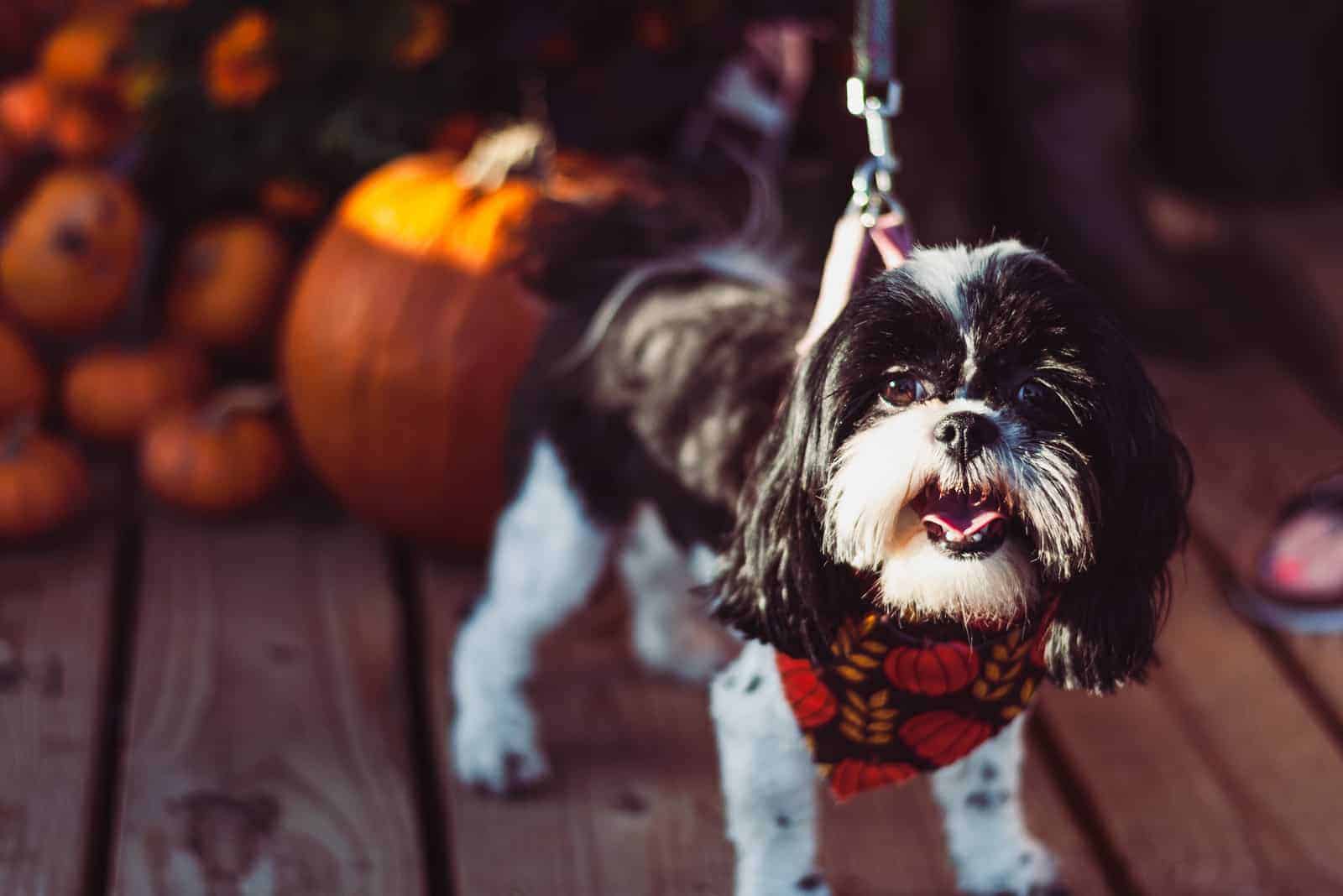
Although generally regarded as ‘low shedders,’ Shih Tzus can experience shedding at other times for several reasons (other than when they are puppies).
A Shih Tzu’s hair actually sheds seasonally just like most other dogs, though this is usually light and will depend on the local climate. The amount of time your dog spends outside will also have an impact.
Also, when a Shih Tzu goes through pregnancy, they may start to shed, a process known as ‘blowing of the coat.’
This usually occurs straight after the litter is born and is a completely natural part of whelping due to hormonal changes.
The coat will soon grow back, provided there are no other health issues or complications after pregnancy.
Keep an eye out for any abnormal hair loss or bald spots, as these could signal a health problem, such as:
• Mites
• Fleas
• Skin infections
• Cushing’s disease
• Allergies
• Ringworm
To Sum It All Up…
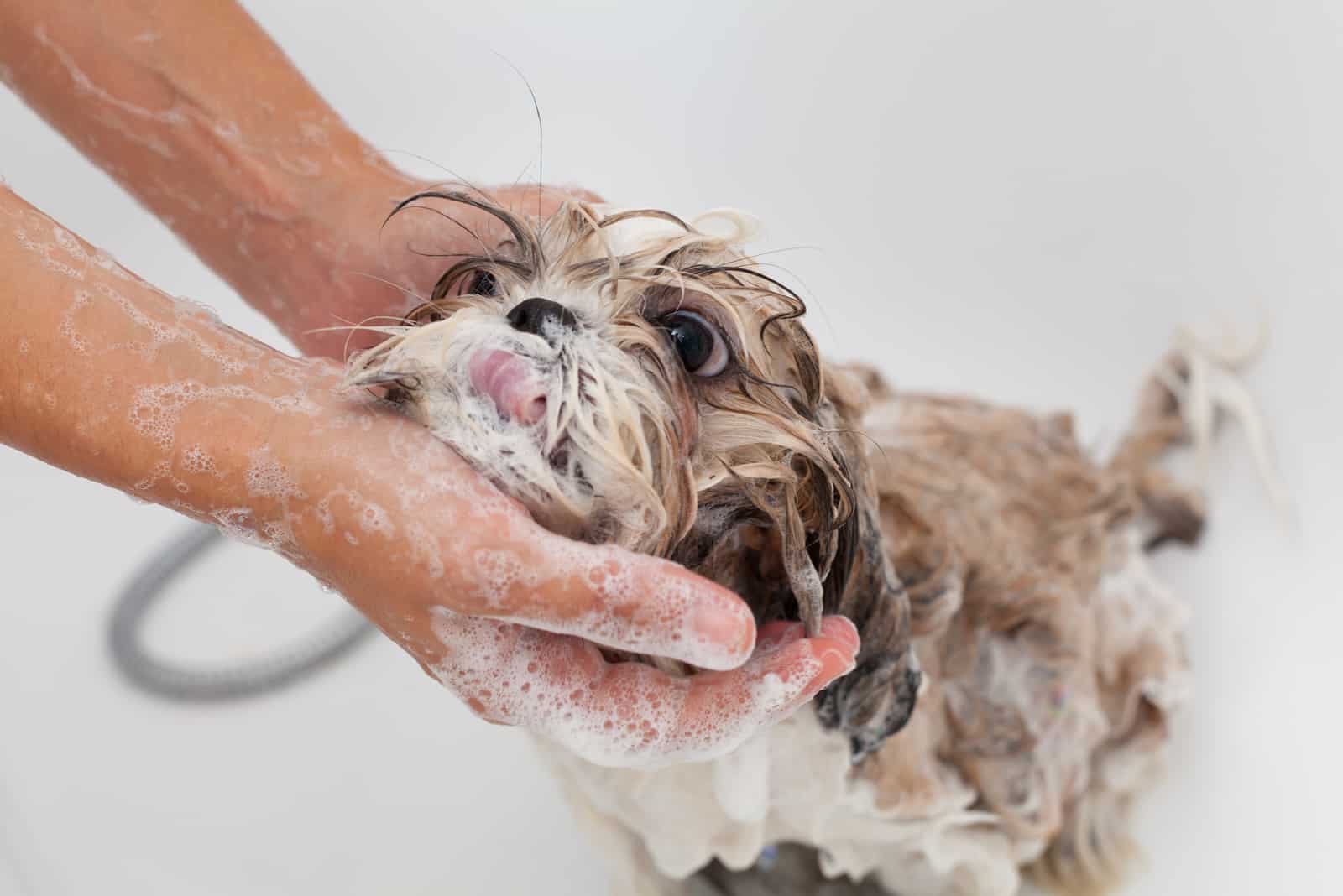
The main aim of this article was to answer the question, do Shih Tzus shed?
And the answer, despite claims to the contrary, is yes, they do! However, they don’t shed as much as other breeds, and even this low amount of shedding can be controlled through regular grooming and a good diet.
We also cleared up the confusion regarding hypoallergenic breeds. Although no dog breed can be ‘allergy free,’ some present less of a problem than others.
As with shedding, the level of allergens you are exposed to can be controlled and limited, provided you take a few precautions.
Let’s finish up with a helpful guide that breaks the information down into manageable pieces:
• Shih Tzus have naturally long, silky hair on the outer coat, with a thicker, softer undercoat.
• They shed a light amount all year round with a little extra in spring and fall, depending on the climate or how much time they spend outdoors.
• Young dogs will lose their puppy coat from three months to a year old, lasting a few weeks but possibly up to three months, when their adult coat grows in.
• They need daily grooming, even if you opt to clip their hair short (loose hairs and dander will fall out much more easily). Regular brushing is vital in keeping their skin and coat healthy, stopping dander from accumulating, and picking up the loose hair.
• They need regular bathing, ideally with a top-quality breed-specific shampoo. A good grooming routine will reduce the possibility of an allergic reaction in humans.
• Female dogs may shed naturally after giving birth, but the coat should recover fully in time.
• Any other shedding or baldness (canine alopecia) might be a sign of a health issue and should be checked out with the vet.
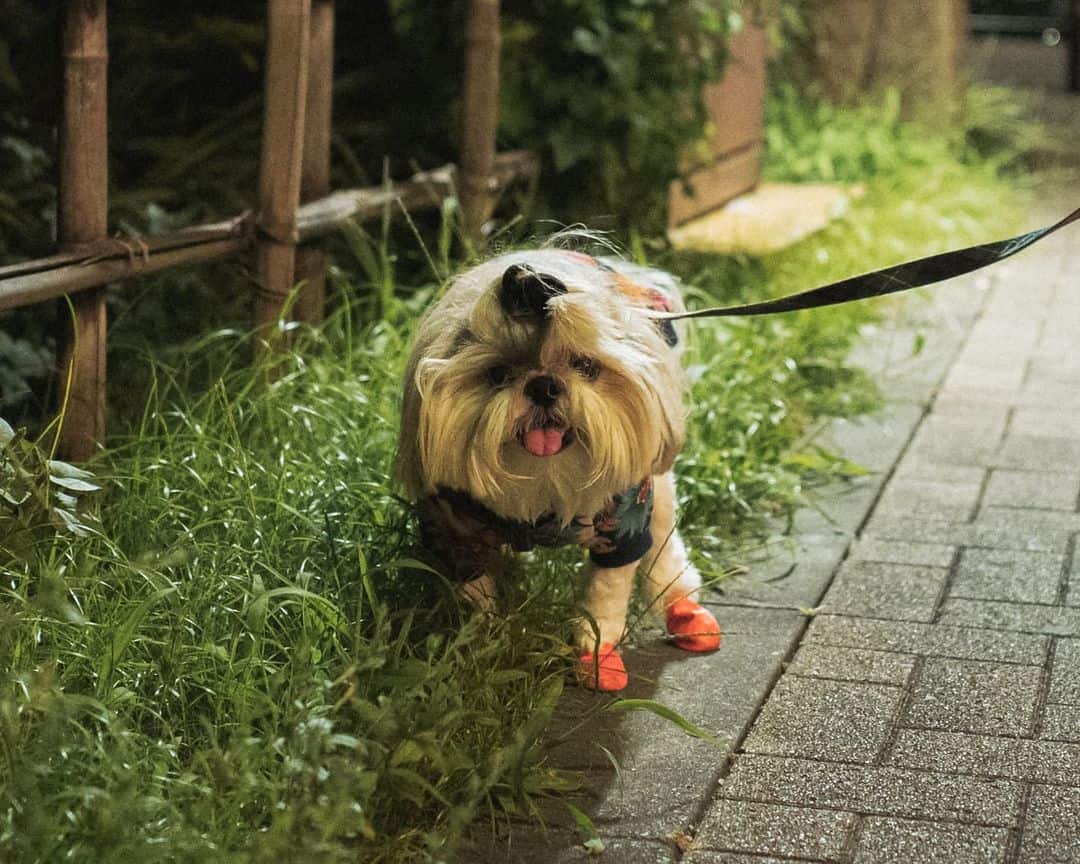
Photo from: @udon_chaan
Shih Tzu dogs are renowned for their affectionate playfulness, making great family pets. They are outgoing and friendly, excellent companions, and are extremely brave for their size!
These qualities, along with the fact that the American Kennel Club lists them as being hypoallergenic with the added bonus of being a low shedder, make them very popular as pets.
This is all well and good, as long as we accept that we need to put in the hard work as well. It takes a lot of effort and dedication to keep that long hair in great condition.
Dead hair that becomes lodged within the thicker undercoat may start to tangle and become matted. These matted clumps can be painful as they tug on the skin and might even lead to infections.
Even if you prefer your dog to have short hair, you’ll still need to keep up that grooming.
The Shih Tzu breed requires a lot of care. They are prone to allergies, dry skin, and infections.
They need brushing every day, ideally, and regular bathing. Whether you choose a Shih Tzu for its sweet nature, low shedding qualities, or both, you must play your part in keeping them healthy.
While there’s no such thing as a dog that is 100% allergy free and that doesn’t shed at all, the Shih Tzu is probably as close as you’re going to get. And on top of all that, it’s adorable.
Read Next: Boykin Spaniel Shedding 101
